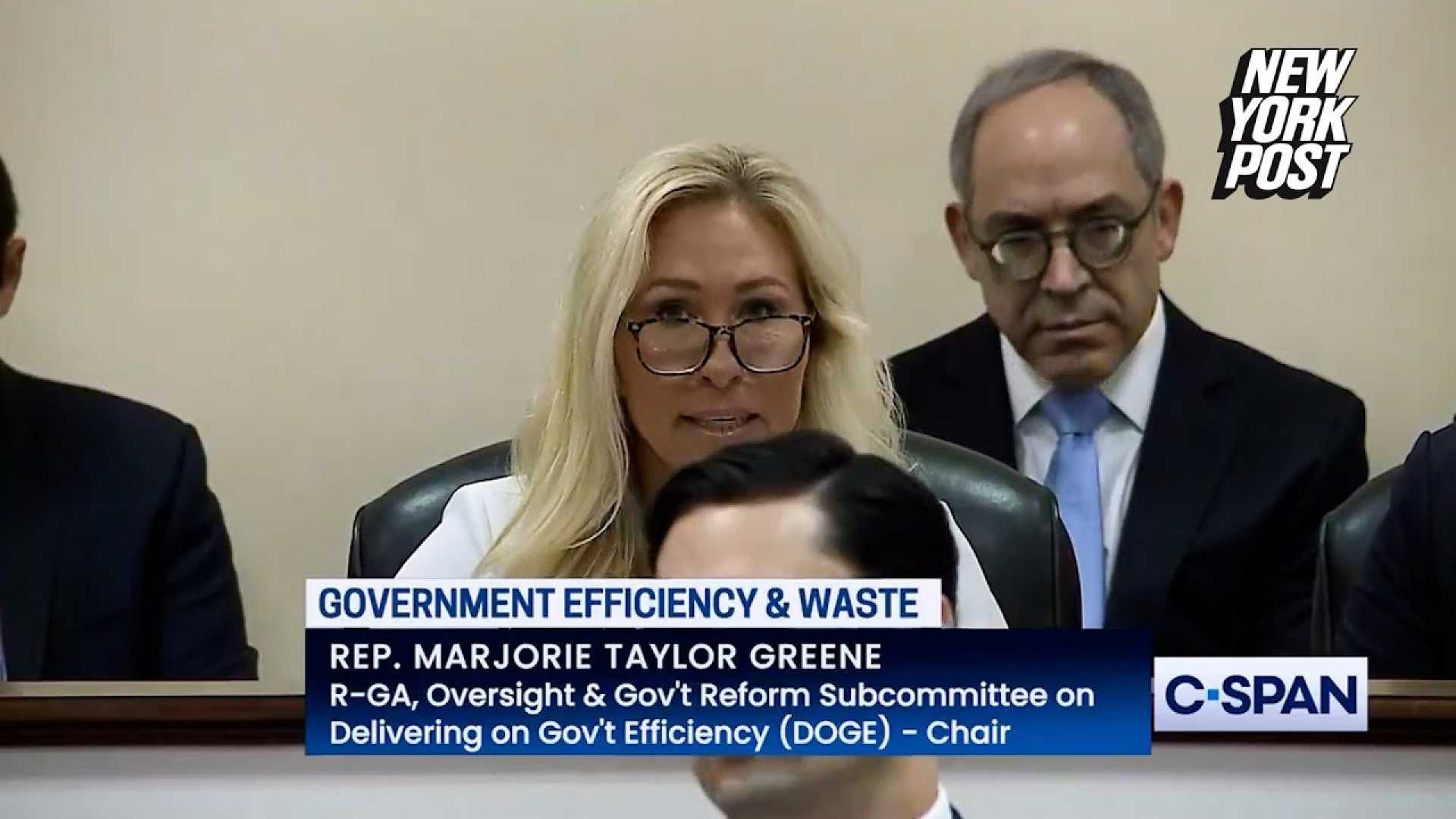Politics
Hearing Launched to Combat Billions in Taxpayer Fraud and Improper Payments

WASHINGTON—The Subcommittee on Delivering on Government Efficiency (DOGE) convened its inaugural hearing today to address the staggering amount of taxpayer dollars lost to fraud and improper payments, amounting to hundreds of billions annually. Expert witnesses provided detailed strategies for overhauling payment systems, closing loopholes, and protecting taxpayer dollars.
The hearing was titled “War on Waste,” reflecting the subcommittee’s commitment to bolster payment accuracy and combat the misuse of funds across federal agencies. Majority members expressed their intent to support President Trump and Elon Musk in their push to streamline government operations.
Chairwoman Marjorie Taylor Greene (R-Ga.) highlighted a troubling statistic during the proceedings: while fraud rates in the private sector sit at about 3 percent, the federal government’s rate skyrockets to roughly 20 percent. Greene questioned witness Mr. Talcove, who confirmed that the disparity is rooted in the tools employed in each sector.
“Mr. Talcove, do private sector companies have a lower rate of improper payments than the federal government?” Greene asked.
“Yes,” Talcove replied. “The fraud rate… is around 20%. In the private sector, it’s around 3%. This disparity is due to the lack of tools like front-end identity verification that are commonplace in the private sector.”
Members of the committee also criticized the previous Biden-Harris Administration for worsening the issue by expanding welfare programs without sufficient oversight, which has contributed to the escalating problems of fraudulent claims.
Rep. Tim Burchett (R-Tenn.) took aim at those defending these practices, asserting self-verification systems in local healthcare settings often surpass federal standards. “It’s about to run off the tracks,” Burchett said. “When people squeal and don’t ask questions, it shows the American public what’s happening.”
Rep. Eric Burlison (R-Mo.) expressed optimism about the formation of DOGE within the Executive Office of the President, indicating its pivotal role in safeguarding against future abuses of taxpayer funds. “The formation of agencies via executive action is not new,” he explained during discussions.
Addressing technological constraints, Rep. Brian Jack (R-Ga.) pointed out inefficiencies stemming from the outdated 1974 Privacy Act, noting, “One third of all prior authorizations are still done manually by phone, fax, or direct post mail.” He emphasized the need for modernizing this act to incorporate technologies like AI.
“By updating the 1974 Privacy Act and allowing for digital matching, we would quickly realize that many improper payments could be eliminated,” Talcove added.
Rep. Brandon Gill (R-Texas) held the Democrat Party accountable for fostering a more powerful administrative state that perpetuates fraud. He cited a staggering $2.7 trillion in improper payments since 2003, equating the current situation to potentially the largest money laundering scandal the country has ever seen.
“What we’ve uncovered is that so much waste, fraud, and abuse is actually funding media outlets and organizations that are against the American people’s interests,” Gill asserted, stressing the urgent need for reform.
The DOGE Subcommittee’s efforts underscore a heightened focus on fiscal accountability and ethical governance, as lawmakers from both parties examine how best to protect taxpayer funds and improve federal efficiency.












